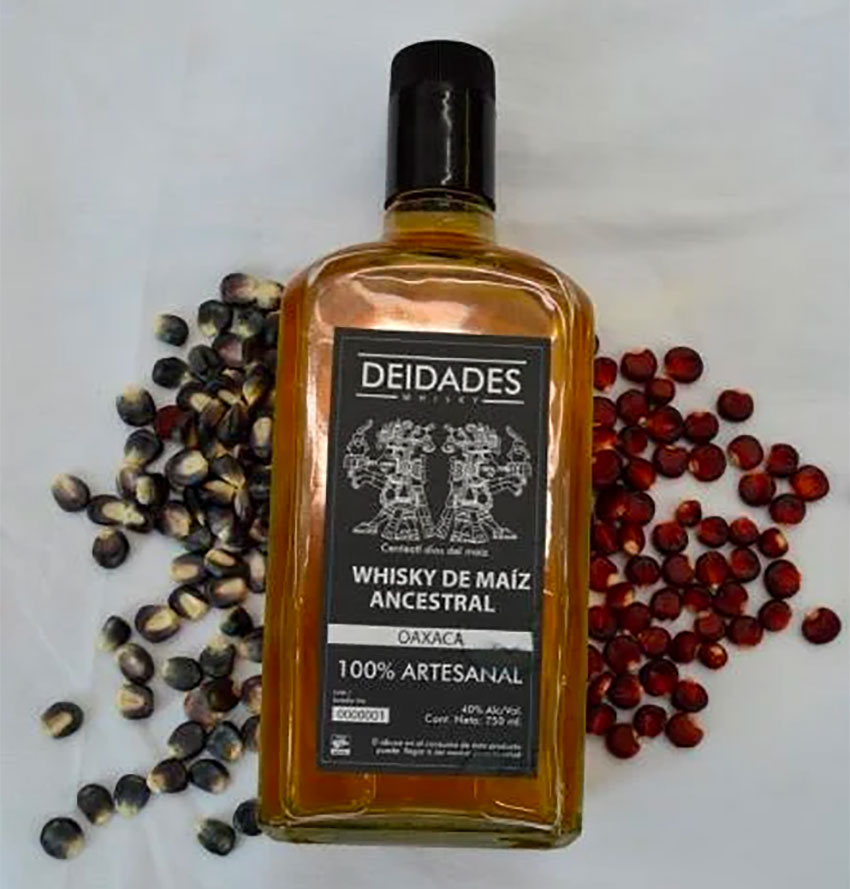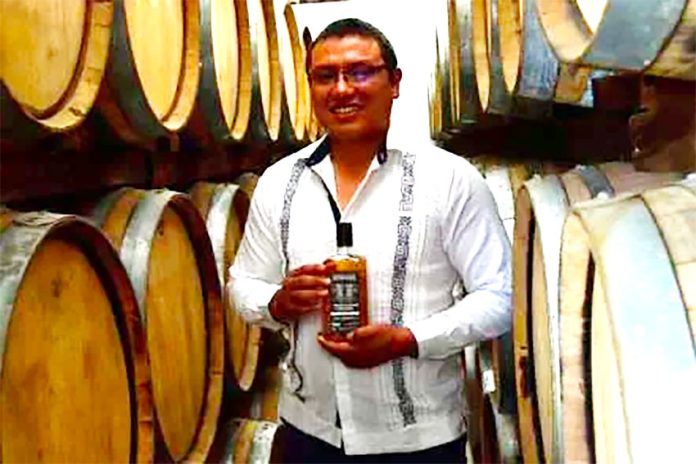It all started when a farmer in the Central Valleys region of Oaxaca tried to offload his surplus corn crop to a company CEO to whom he was already selling castor beans.
From that humble entrepreneurialism on the part of the farmer – and a gamble by the head of a castor oil company – an “ancestral” corn whiskey made out of native, Oaxaca-grown corn was born.
According to a report by the newspaper El Universal, when the farmer first tried to sell his excess corn along with his castor beans to Jonatan Hernández Díaz, CEO of RicinoMex, he got a negative response.
Undeterred, the same farmer tried his luck a year later. “Buy it! Do something with it, make mezcal,” the farmer reportedly urged Hernández in a jocular way.
The RicinoMex chief agreed to the purchase even though he had no idea at the time what he would do with the corn.

First he thought of grinding it into flour but that idea was discarded because of an already crowded market and the investment in infrastructure that was required. What about corn chips? Again the investment required was deemed to be too high.
Hernández’s third idea was the one that stuck – he would move into the distilling business and make a 100% handcrafted corn whiskey.
Thus a new company – Deidades (Deities) – was formed. Hernández and his team began making whiskey 3 1/2 years ago with native corn purchased from about 80 indigenous small-plot farmers in the Central Valleys.
The first batch of 50,000 bottles will go on sale in December, possibly in international markets as well as in Mexico.
Hernández told El Universal that the vast majority of the farmers from whom RicinoMex buys castor beans also grow corn and therefore finding maize for the whiskey wasn’t difficult.
“Their corn is for their own consumption but sometimes they have a surplus,” he said, adding that most found it difficult to sell it at a fair price.
Now that Deidades is making whiskey, Deidades pays the farmers 8 pesos a kilo for their white, yellow, red, blue and black corn, double the price they can get from other buyers.
Hernández said he wants the price he pays to reflect the “value of the work carried out in the communities” where the corn is grown. He described the native corn species grown in Oaxaca as “something magnificent” and a treasure that must be shared with the rest of the world.
Making whiskey with it is an innovative way to do just that.
After malting and mashing the corn and completing the fermenting and distilling process, the end result – the native corn whiskey – is placed in French oak barrels for aging. Hernández explained that he is working with specialists to determine the optimal amount of time his product should be aged.
He said the aim is to have a product that proudly tells the story of native Mexican corn on imbibers’ taste buds and which they truly savor.
Oaxaca is already famous for its mezcal. Could Deidades’ “Whisky de maíz ancestral” be the next big thing?
Source: El Universal (sp)
